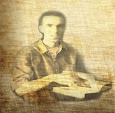 | |||||
| Author Cyanide Studio source |
In George RR Martin’s series
humans can shapeshift into other animals, but wolves are, as it was mentioned
in “Dance with dragons”, different. They are harder to slip into, but if you
do, the bond between the two of you is stronger then with any other animal.
As Haggon says in Prologue
of Dance With Dragons:
Wolves were harder. A man might befriend a wolf, even break
a wolf, but no man could truly tame a wolf. “Wolves and women wed for life,” Haggon
often said. “You take one, that’s a marriage. The wolf is part of you from
that day on, and you’re part of him. Both of you will change.”
In Bulgaria for instance,
there is a belief which states that if wolf and man were born on the same day,
they will die at the same time as well.
In legends, and myths and
tales often there are a lot of variations, a lot of overlapping of stories, so
in this case we must take into account that sometimes in some stories and
customs of Slavic people – wolves, warewolves and vampires were the same
creature. In Montenegro and Dalmacia they actually called vampires wolves. They
believed that when a person rises from the grave he or she turns into wolf.
In some cases just the soul
of the deceist may enter wolf. That part of the belief is more closer to the
warging ability in ASOIF and Game of thrones, where, as it seems, person only
takes control of the mind of the direwolf while their body remains the same.
Wolf is In slavic
folklore, in some oral naratives, related to, or even identified with death. There
is one naration from the middle of the 19th century in Lonja (Croatian Posavlje)
that describes how death comes upon sinners
When a [sinful] man is dying, death
rushes to him on dragon’s
wings; following it permanently are
six dire hounds, hungry
like the grey wolves in the woods
(…). When it arrives at the
house, it sits down on the fence and
gapes like a vainglorious
wolf. (…). The man gasps, his soul
appears [from his mouth],
the hounds grab it, and in the sack
it goes
To find out more watch my video:
REFERENCES:
* Simbolika životinja u Slovenskoj narodnoj tradiciji. Beograd 2005
Aleksandar Gura
Beograd, 2005
* Radenković, Ljubinko (1996).
Simbolika sveta u narodnoj magiji Južnih
Slovena. (The symbolism of the world in folk magic of the South Slavs).
Niš: Prosveta; Belgrade: Balkanološki institut SANU.



0 коментара:
Постави коментар